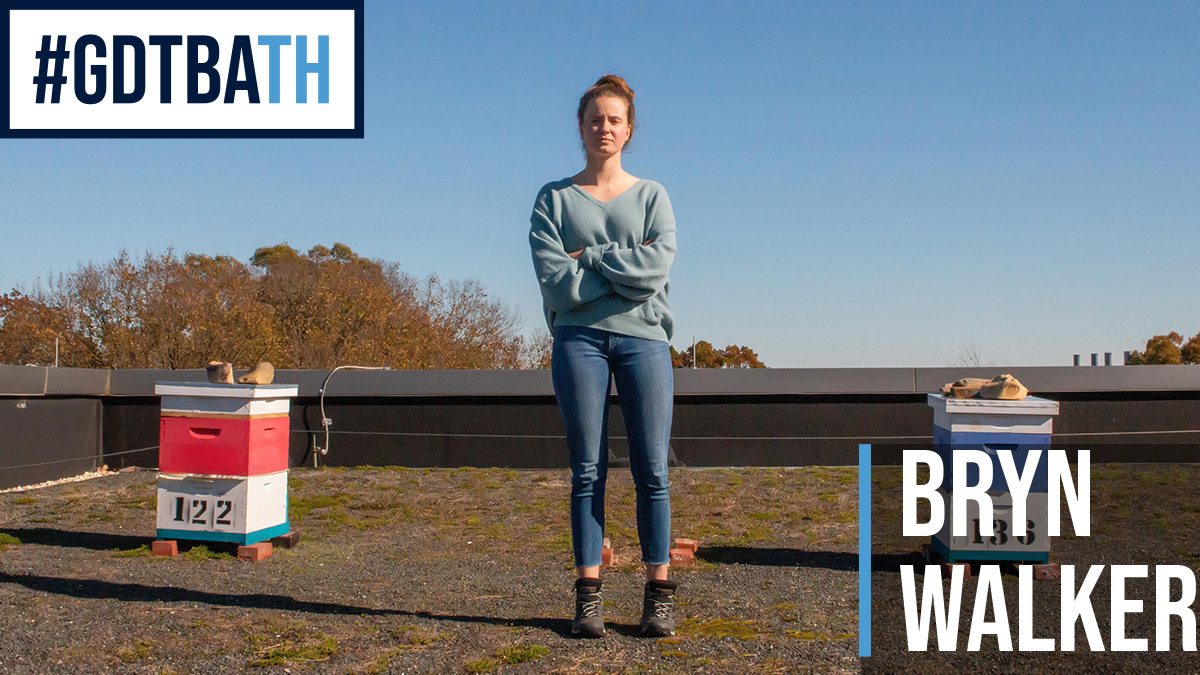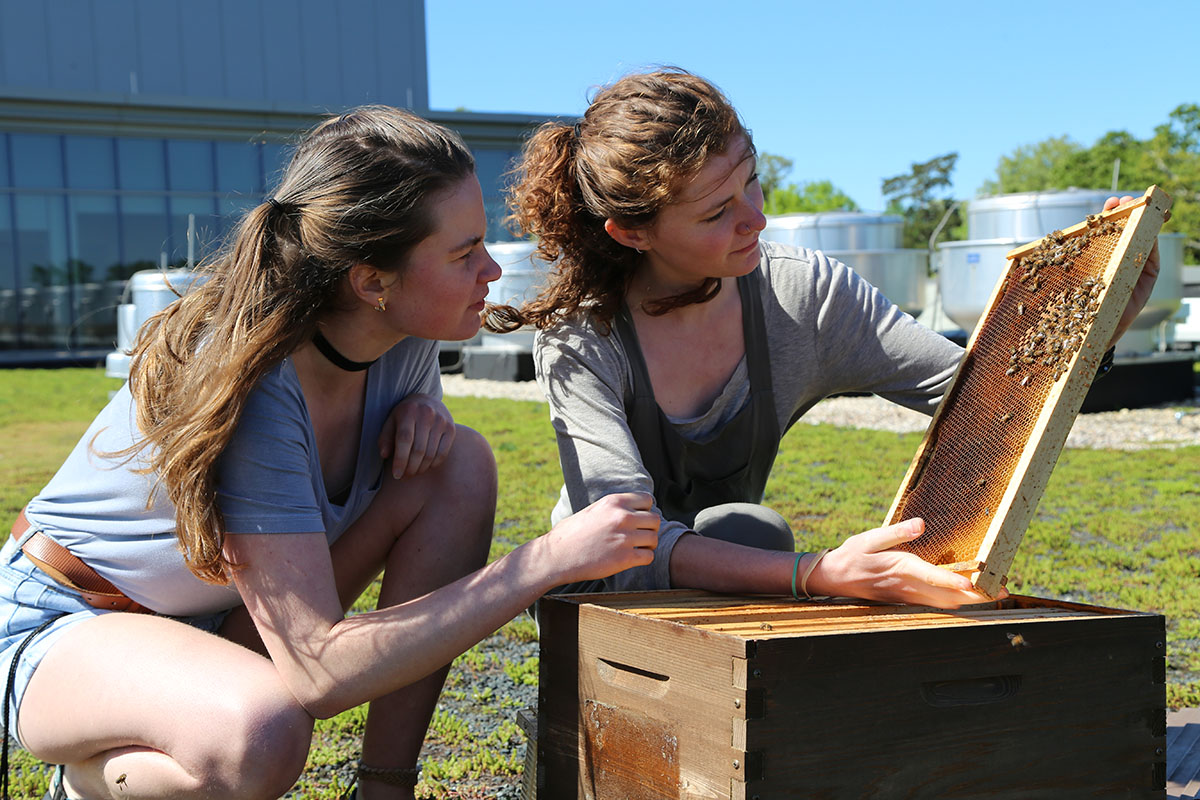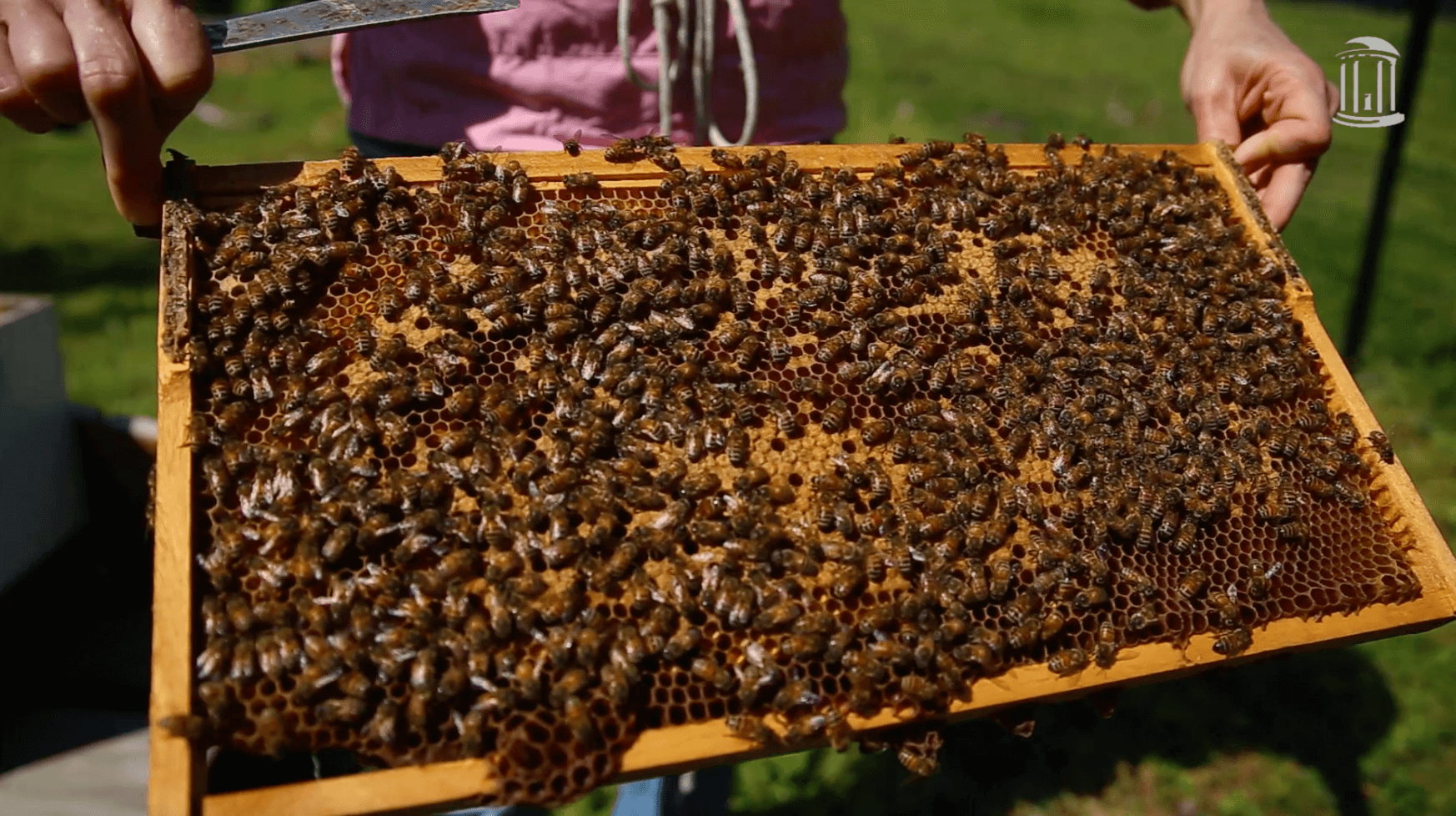#GDTBATH: Bryn Walker
Junior Bryn Walker is raising awareness of pollinators and their environmental importance as the president of the Carolina Beekeeping Club.

Bryn Walker, a junior from Morrisville, North Carolina, is president of the Carolina Beekeeping Club — an experience that has shaped her passion for beekeeping.
“Being part of Carolina Beekeeping Club is how I’m changing UNC-Chapel Hill in a small way, and how being at UNC has changed me in many big ways,” she said.
The College of Arts & Sciences sat down with Walker to discuss her role as president of the club, her success in getting the University recognized as a “Bee Campus USA affiliate” and her Carolina journey.
What made you interested in beekeeping?
I saw the Carolina Beekeeping Club on the student organization list before I arrived my first year. I thought that joining would be fun for a few reasons: I could gain some skills that I might apply later in life if I ever decide to keep my own bees, and beekeeping as a practice is something that I can enjoy without thinking about my academic work.
You are studying anthropology and food studies. How are you combining these two fields with your interest in sustainability?
There’s a lot of overlap between the food studies and anthropology fields, as well as sustainability. All these fields come together really nicely in what I’m studying, so that, for example, I can consider agriculture in the context of specific cultural situations or practices as well as from a sustainability standpoint and understand that all of these things relate. It’s impossible to view anything from a single perspective and thoroughly understand it, and I’ve taken this concept and applied it to my work with pollinator awareness.
With the University being named a Bee Campus USA affiliate, what initiatives are in place to educate the Carolina community on the importance ofbeesand what it means to have this important distinction?
We are approaching the end of our first year as a Bee Campus USA affiliate. So far, we’ve put on a few educational events about pollinators, as well as providing information to the public and coordinating with other groups to enhance pollinator awareness. Some examples include a pollinator talk given by Chris Apple, outreach director of Orange County Beekeepers Association at the North Carolina Botanical Garden, and two BioBlitz events in the Battle Grove Restoration site during which community members can track data on pollinator populations and sightings using the iNaturalist app. This will allow us to gather information about which pollinators are present in the site over time.
We organized a pollinator display on the first floor of Davis Library that shows many pollinator-related books as tools for learning. We also created collaborations with groups like Edible Campus to provide more physical habitat for pollinators on campus.
Have you seen a change in the student environment at Carolina around sustainability and bee preservation efforts after the Bee Campus USA recognition?
There’s still a long way to go in raising awareness of pollinators and their importance and plight. However, I have noticed increased membership and involvement in the Carolina Beekeeping Club, as well as the formation of a pollinator committee under the Edible Campus student organization. There’s also general interest on the part of community members both in Chapel Hill and on-campus for having beehives and providing habitat for other pollinators.
How has your role as president of the Carolina Beekeeping Club shaped your experience at UNC-Chapel Hill?
Bees are what I have become known for in my classes and among my friends, and perhaps beyond that, it’s become how I define myself. I’m a beekeeper; it’s what I do. My involvement in CBC has changed over time. I’ve gone from a member to the secretary and now to the president, but through all of this, I’ve thought of CBC as a guiding force in my life. It was in this club that I made some of my most important friendships, and where I began to shape my own identity and how I operate in the world. It will be something that stays with me for the rest of my life.




